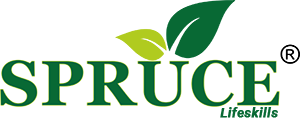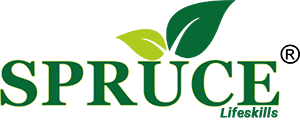- +91-9595025757
- sprucebusiness@gmail.com
- Nagpur, Maharashtra
Clinical research
Overview of Clinical Research
Clinical Research Is A Branch Ofhealthcare Science That Determines The Safety And Effectiveness (Efficacy) Of Medications, Devices, Diagnostic Products And Treatment Regimens Intended For Human Use. These May Be Used For Prevention, Treatment, Diagnosis Or For Relieving Symptoms Of A Disease.

Branches of Clinical Research
Clinical Operations refer to the activities that support the clinical trial process from start-up to close out. Clinical Operation professionals are tasked with the planning,implementation, management, and execution of the clinical trial process. Clinical trials involving new drugs are commonly classified into four phases.Each phase of the drug approval process is treated as a separate clinical trial. If the drug successfully passes through Phases I, II, and III, it will be approved by the national regulatory authority for use in the general population. Phase IV is post-approvalstudies
Regulatory affairs managers analyze data from clinical trials or from the research and development process and determine the efficacy of a pharmaceutical drug or medicaldevice. They must ensure that an organization's product abides by the regulatorystandards outlined by the FDA or ICH. The regulatory affair professionals are required in areas of clinical trial approval,product registrations, regulatory writing, regulatory publishing, regulatory consulting, legal representation and others. The role of regulatory affair official usually lies inensuring companies compliance with various regulations and laws; coordinating with global and local regulatory agencies and advising on the regulatory aspects related toproposed projects. The major responsibilities of these professionals are providingregulatory consultation, formulating drug development strategies, product dossiers, conducting gap analysis, submitting reports,communicating with regulatory agencies and providing training related to regulatory affairs.
Pharmacovigilance is the process and science of monitoring the safety of medicines and taking action to reduce the risks and increase the benefits of medicines. Pharmacovigilance, also known as drug safety, is the pharmaceutical science relatingto the "collection, detection, assessment, monitoring, and prevention" of adverse effects with pharmaceutical products.pharmacovigilance is concerned with identifying the hazards associated with pharmaceutical products and with minimizing the risk of any harm that may come to patients. Companies must conduct a comprehensive drug safety and pharmacovigilance audit to assess their compliance with worldwide laws, regulations, and guidance.
Clinical data management (CDM) is the process of collecting and managing research data in accordance with regulatory standards to obtain quality information that iscomplete and error-free.Clinical data management ensures collection, integration and availability of data at appropriate quality and cost. It also supports the conduct, management and analysis of studies across the spectrum of clinical re earch as defined by the National Institutes of Health (NIH). The ultimate goal of CDM is to ensure that conclusions drawn fromresearch are well supported by the data. Achieving this goal protects public health and increases confidence in marketed therapeutics.
Medical writing involves writing scientific documents of different types which include regulatory and research-related documents, disease or drug-relatededucational and promotional literature, publication articles like journal manuscriptsand abstracts, content for healthcare websites, health-related magazines or news. A medical writer, also referred to as medical communicator,[1] is a person whoapplies the principles of clinical research in developing clinical trial documents thateffectively and clearly describe research results, product use, and other medicalinformation. The medical writer develops any of the five modules of the CommonTechnical Document. The medical writers also ensure that their documents complywith regulatory, journal, or other guidelines in terms of content, format, and structure.
Course Offered
Feature: Clinical Research Major branches covered with Medical Coding CPC training which gives students opportunity to work in both the industries. Also include 2 International Certifications, which do value addition to students resume for career development.
Subjects include:
- Clinical Operation ( Clinical Research)
- Pharmacovigilance
- Medical Writing
- English – Cambridge Course
- Certified Professional Coder (CPC)Plus (+) 2 International Certifications
Enquire Now
Feature:
- Get two International Certificates.
- Training by doctors.
- Updated Study Material.
- Regular Class Test.
Subjects include:
- Clinical Operation
- Regulatory Affairs
- Pharmacovigilance
- Medical Writing
- Clinical Data Management
Enquire Now
- Clinical Operation
- Regulatory Affairs
- Pharmacovigilance
- Medical Writing
- Clinical Data Management
Enquire Now
Customize Courses
Students can customize course as per course category, subject, modules & duration wise.
Branches of Clinical Research
Clinical Operations
- CRC
- CRA
- Investigator
- Study Coordinator
Pharmacovigilance
- Drug Safety Associate
- Drug Safety Analyst
- Data Analyst
Clinical Data Management
- QA
- QC
- Data Validation Executive
- Database designer
Medical Writing
- Scientific writer
- Medical Writer
- publishing manager
Regulatory/ Medical Affairs
- Regulatory Affairs Executive
- Regulatory Affairs Specialist
Teaching Methodology
Spruce Advantage

-
Training as per Industry Demand
-
Updated Study Material
-
Regular Class Tests
-
Customize Training as per Job Requirement
-
Placement Focused Approach
-
International Certifications
Contact Info
- +91-9595025757 | +91-8999499930
- sprucebusiness@gmail.com
- 3rd Floor Navprabhat Chambers, Beside ICICI Bank, Near Lokmat Square, Ramdaspeth, Nagpur, Maharashtra 440010







